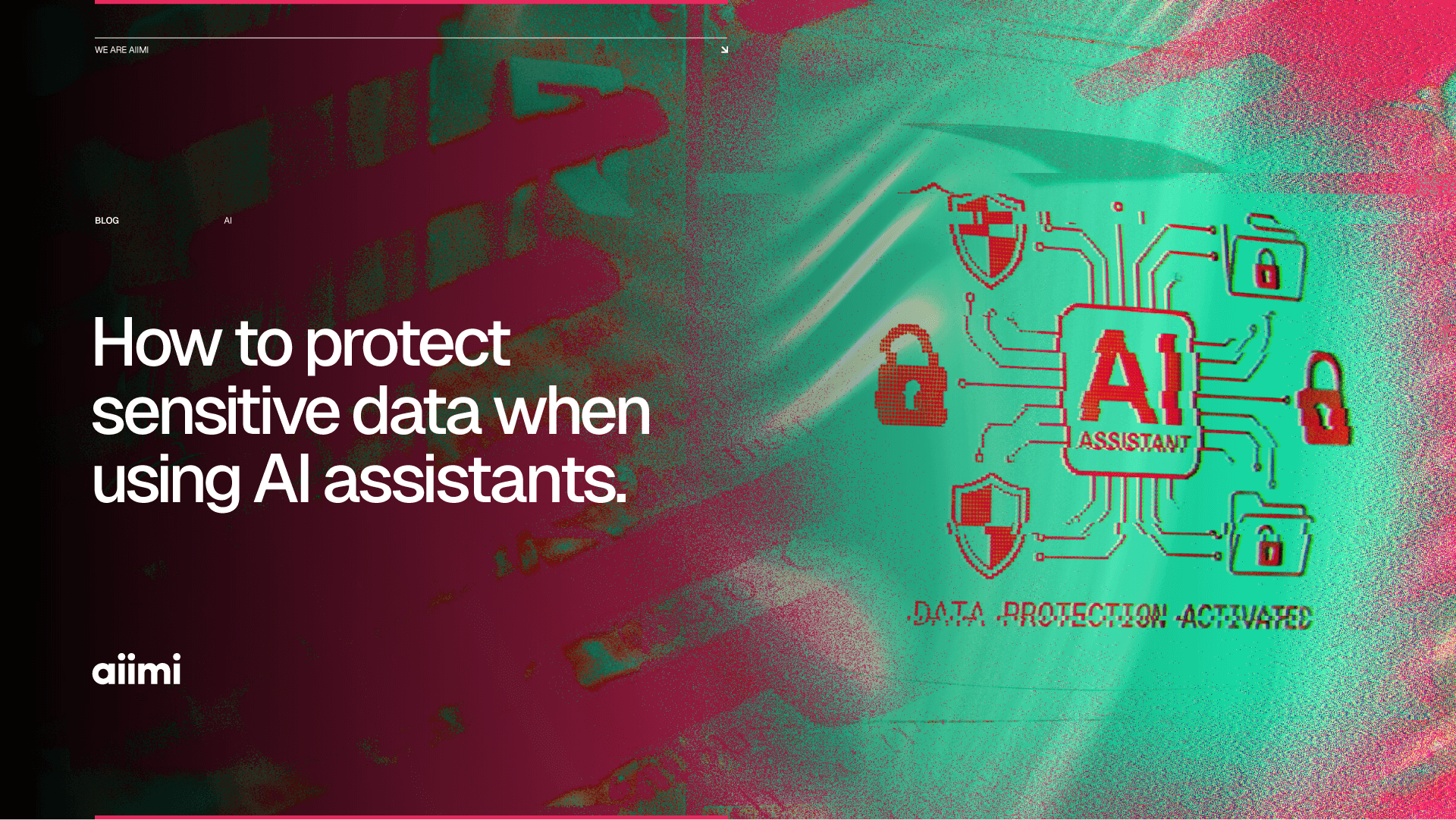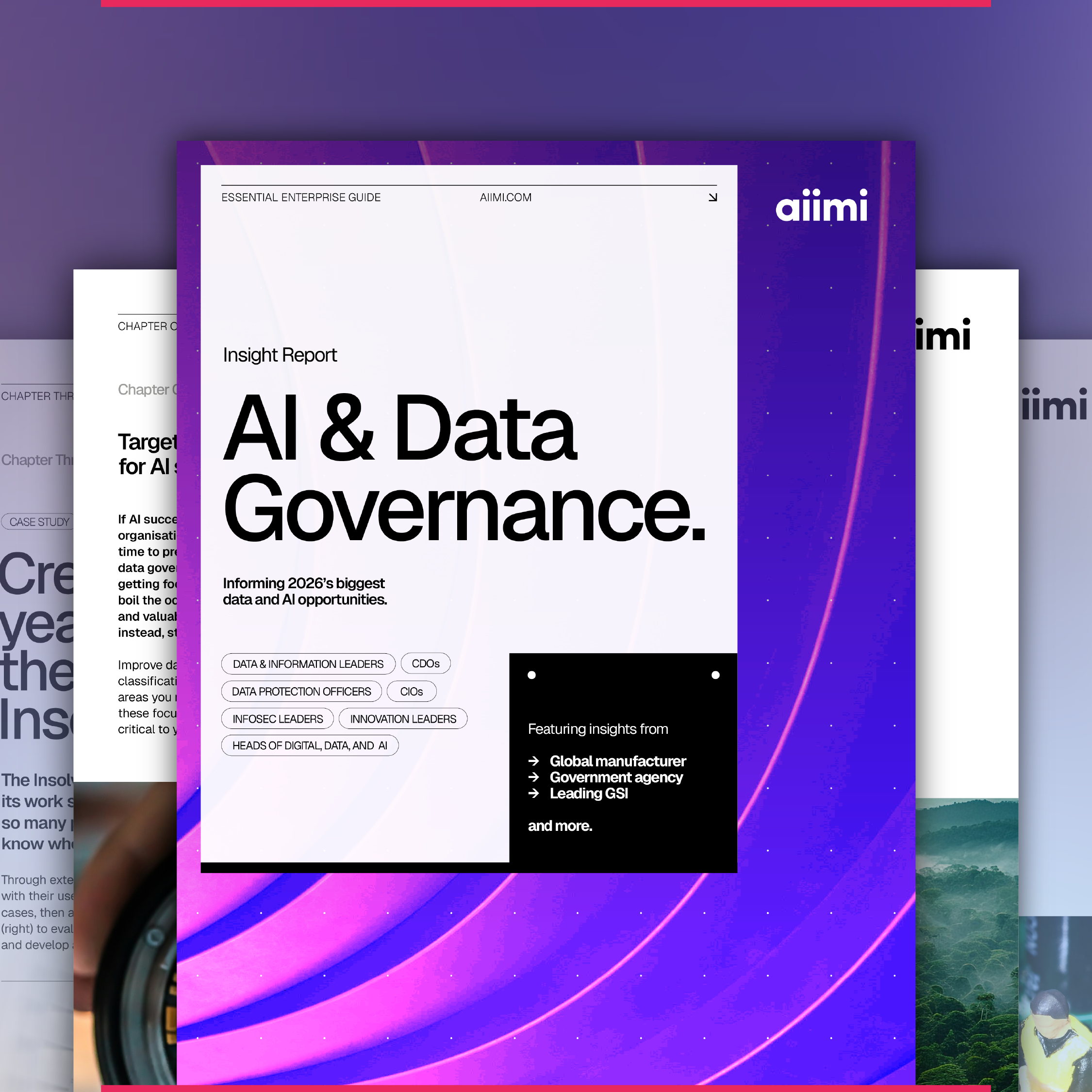Top-priority GenAI use cases for your business

You’re likely already aware that GenAI is being used in business settings to transform value, increase productivity, and eliminate low-value tasks. In fact, with the rise (and risks) of edge AI, it’s likely already being used by your employees to some degree. But what if you could unify your entire data picture and use GenAI to support specific roles and departments – and beyond that, to solve high-value problems across your organisation? To operationalise AI in the most effective way, for your business, your employees, and your customers, you need to start by identifying your most high-value problems and objectives – whether that’s reducing the time taken to fix product faults, hitting regulatory customer service targets, or addressing recurring compliance issues. From there, we help you identify the specific GenAI uses cases that will get you there, and the best ways to implement them.
Choosing the right GenAI use cases
It will come as no surprise that the best way to select GenAI use cases for your business is to ask the people in your organisation who will be interacting with the technology on a daily basis: your employees. However, before workshopping with them how GenAI could be deployed to best impact their roles, workflows, and operations, there are some key considerations:
Firstly, do your employees have a foundational understanding of what GenAI is and what it does? This includes a functional vocabulary of key AI concepts such as what different GenAI models do, why there are so many of them, and why choosing the right one matters. Additionally, it will be helpful for them to know to why RAG (Retrieval Augmented Generation) relies on data quality and why it’s important to be able to find the right information across your corporate systems.
Do they have insight into how GenAI adds value by improving outcomes? Can they envision how GenAI can help them in their roles, to support their existing capabilities and eliminate friction in their workflows? Beyond understanding the potential for GenAI to enhance their roles in theory, they need to understand how it is applied in practice to deliver quantifiable value.
Do they have the information and resources they need to brainstorm ideas for how AI can be operationalised in practical, feasible terms to support their operations? This includes recognising the optimal moments to deploy AI – as well as when it’s best not to.
Teams across your organisation can benefit from GenAI – from sales, HR, and operations, to leadership, asset management, and customer service. However, without equipping them with a foundational knowledge of GenAI, allaying any fears about the technology, and helping them see a path toward effective adoption, it’s much more difficult to work collectively on developing a prioritised list of use cases.
In fact, when we surveyed UK leaders about their use of AI in business, 49% reported that they are investing in skills development and training to help their workers understand when and how to use AI. The purpose is to dispel potential misconceptions about the technology and empower employees to embrace it in a way that helps them improve outcomes. These foundational concepts can serve as jumping-off points for your employees, forming the basis of frameworks that pave the way to effectively extracting value from data and AI. Equipped with this knowledge, your teams can start brainstorming ideas around how AI can be operationalised in practical terms to support their roles and operations.
Demonstrating that the technology can be deployed to reduce everyday friction or frustrations within their role can lay the foundations for effective, collaborative, and targeted GenAI adoption. It’s important to highlight how the benefits of GenAI go beyond just the bottom line; the best use cases for your team might be the ones that reduce the tedious, labour-intensive processes that otherwise get in the way of more strategic or creative work.
The aim is to coordinate an indexed list of possible GenAI use cases, all validated by the people that will be working with the technology on a daily basis. By closely involving your people in this process, you can ensure they have a say in the future of AI within the organisation and are invested in the outcomes.
Potential GenAI use cases
From automating workflows and summarising unstructured data to employee and customer-facing chatbot tools, the use cases of GenAI may seem endless – and even overwhelming. By focusing on where within your organisation GenAI can be used to deliver measurable impact, you can cut through the noise surrounding the technology and identify the highest AI ambitions for your company.
Through our AI strategy consulting and AI workshops, our customers have developed targeted lists of use cases, which we've helped them see through to implementation. From original strokes of genius to tried-and-true GenAI tools, we’ve seen it all. Here are some of the most popular and viable use cases we’ve helped our customers to identify, rank, and deploy, each developed to help solve a specific high-value business need or objective:
Onboarding new clients. Using AI to extract entities from unstructured data to populate structured records for new clients.
AI Assistants for client teams. A co-pilot use case could help relationship development teams prepare for client meetings by quickly summarising large amounts of content.
Supporting back-office processes. Data can be used to train internal chatbots to guide back-office teams through workflows and data collection processes.
Sales support for new business. AI can be used to identify the most relevant client prospects and create draft proposal content to support business development processes.
Augmenting AI for business intelligence with new data sources. Using GenAI to bring structure to previously unstructured data, so that it can be fed into BI tools to extract insights.
Checking compliance with policy. Document and content checks can be automated to ensure they comply with required business policies and procedures.
Enriching internal datasets. GenAI can be used to enrich data records, to add structure and combine both internal and external unstructured data.
Decision support chatbot in manufacturing. AI tools can help service agents identify common mechanical faults and how they can be fixed, to reduce the time assets are out of service.
Customer service support. Using technical KBAs to find answers with Q&A, the reliance on contacting specialist technicians can be reduced and uptime for assets can be improved.
Data research and summarisation: Gen AI can be used to interrogate and summarise open-source data, connecting research teams and analysts to the information they need to deliver mission-critical insights to government departments.
Whether you want to make smarter data-driven business decisions, define your approach to AI ethics, or use AI to automate compliance and mitigate risk – whatever your goal, our experts can help equip your people with the knowledge they need.
GenAI use cases, tailored to your business
 GenAI Workshops by Aiimi
GenAI Workshops by Aiimi
Through interactive workshops with our customers, we’ve spotlit the potential for GenAI to augment decision-making and solve high-value problems. Our workshops demystify the technology and dispel fears around AI adoption, to build consensus on its use going forward and help teams see paths toward effecting positive change and operational efficiency through GenAI.
With dedicated workshops specifically tailored to your team’s ambitions and concerns, we help you identify the best, highest-priority GenAI use cases for your organisation. We don't just talk about GenAI in abstract terms – we use our expertise and experience to show you how it works in practice, with examples of real-life GenAI use cases that other organisations are developing with us. We supply you with foundational knowledge tied to practical application; and beyond that, when you decide you want to bring the technology into your business context, we’re ready to help you deploy it.
“It was great to be part of an energetic day exploring how we could use GenAI and Predictive AI models in our business to support our clients’ growth ambitions and to remove/ reduce non-value-add activities for our Relationship Teams. The value of having front-office colleagues in these sessions discussing and outlining genuine possible business outcomes utilising any technology solution is always critical, and this session did not disappoint.” - Claire May, Head of Data & Digital, Colleague & Client Experience, Corporate & Commercial Banking, Santander UK
Talk to us about which of your departments would benefit most from strategically chosen GenAI use cases – we’ll develop a custom GenAI workshop to help target your high-value problems, automate your low-value tasks, and ready your teams to operationalise AI.
Stay in the know with updates, articles, and events from Aiimi.
Discover more from Aiimi - we’ll keep you updated with our latest thought leadership, product news, and research reports, direct to your inbox.
You may unsubscribe from these communications at any time. For information about our commitment to protecting your information, please review our Privacy Policy.



